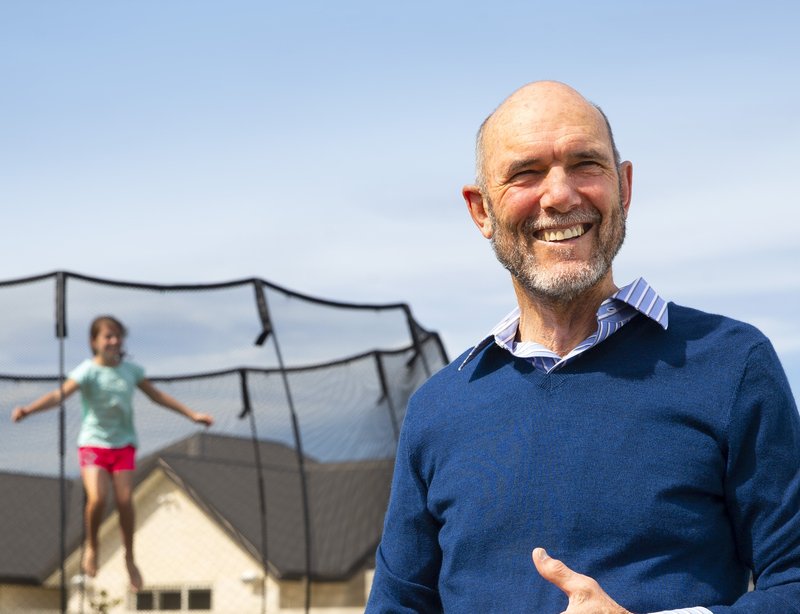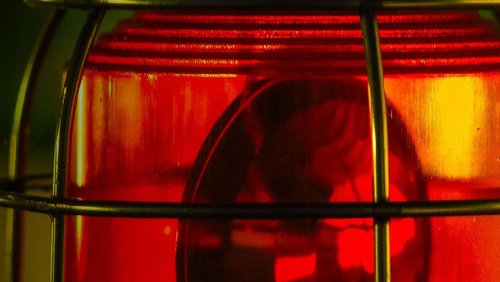15 Feb 2022
Keith Alexander is a mechanical engineer and inventor – known for his invention of the Springfree® Trampoline. He's currently a professor of mechanical engineering at the University of Canterbury.
What is your role at the University of Canterbury?
I'm currently a Professor in Mechanical Engineering Design.
Is there an academic who inspired you to enter the world of academia?
There's not a single person, but when I eventually found I loved engineering, I was inspired by many of the staff at the University of Canterbury at the time. In particular Cliff Stevenson, Richard Harman, Peter Giddens, Graham Parker and Frank Newstead.
What’s the best thing about teaching mechanical engineering to students?
Working with smart young people is always a privilege! I love seeing them light up when they start to understand how things work.
I know they are being given the tools to make a significant contribution to the world, and they will be well rewarded for it.
What would be your dream student project to supervise?
Exploring a crazy machine that has never been built before. In particular, one that flies, or one that's fast on the water.
The invention that you are best known for is the Springfree® trampoline. What words of wisdom do you have for engineering students who wish to take their inventions to market?
Not all good ideas are going to make money... To have a good idea that will make money, you have to have lots of ideas. Much of being successful with an invention is knowing how to select the right idea to work on, from all the ideas you have.
It takes quite a bit of courage to set to work on a proof of concept that no one else understands, or that might look and feel like a waste of time.
It's most likely you're going to need help to get it to the market; you can’t do it all on your own.
It’s like raising a child; you have to carry and feed it for years. It costs more and more as time goes on, then it gets a life of its own and leaves you behind; then if you’re lucky, it will all be worth it in the end.
What is one tip you would give all engineering students, regardless of which discipline they are studying?
The engineering professions teach you a lot about how the world works, they allow you to make really meaningful contributions to society. In most cases, they reward you well for your work.
It's sometimes difficult to see, while in the midst of doing the degree, to see how valuable it'll be to you once you're in the workforce.

How do you introduce and incorporate sustainability concepts in your teaching?
Sustainability and its many facets have been part of the engineering design courses for a long time. They arise as “Design Constraints” among the many that may be required by a customer.
With the recent emphasis on sustainability, new tools such as Life Cycle Analysis are being brought into the degree as specific topics and assignments that'll equip the students to meet increasing customer needs in this area.
Why are you a member of Engineering New Zealand?
Being a member of Engineering New Zealand gives me a measure of authority on engineering matters. But at the same time, it reminds me of my responsibilities – there are values and a code of conduct I'm expected to abide by.
Professional memberships are internationally recognised as best practice for a wide range of professions – and I want to be a part of best practice!
What’s your favourite piece of engineering in Christchurch?
I was particularly taken by John Berrill’s dense seismic instrumentation network that was spread across Canterbury and delivered valuable data from the Canterbury earthquakes in 2010-2011.
His timely vision and commitment meant the world has a better understanding of earthquakes and is a safer place as a result.
I am something of an enthusiast for children’s play equipment and am full of admiration for the Margaret Mahi playground in Christchurch city.
What do you do in your spare time?
I enjoy working in my home workshop, fixing things, making kinetic art objects, prototyping the odd machine concept.
I also love reading to understand our place in the universe, on our home planet, and in the world community.
I would love to make a scientific discovery and spend quite a bit of time puzzling over anomalies that we don’t yet understand.




